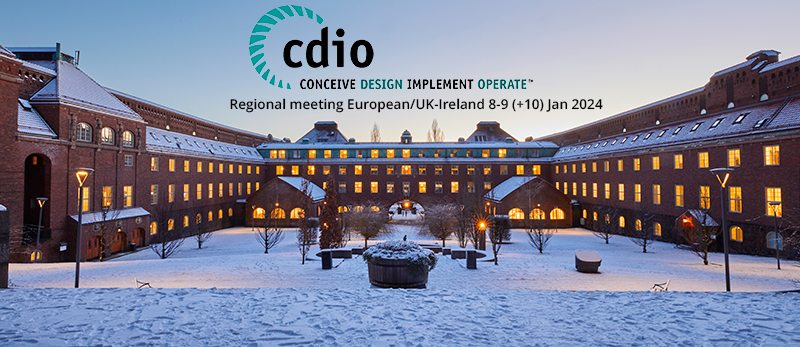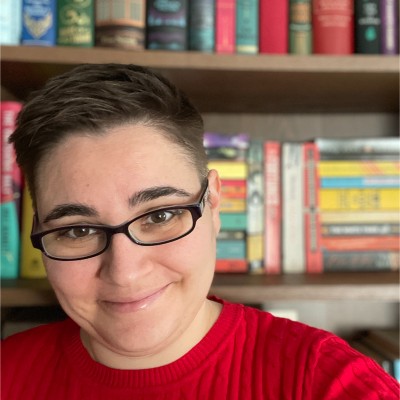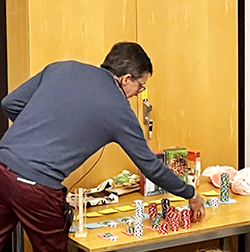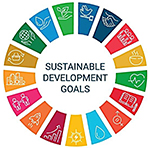KTH hosts CDIO Regional Meeting: Transforming Engineering Education

Hosting the European/UK-Ireland CDIO Regional Meeting on the 8th - 10th January 2024, around 80 people attended the meeting at a snow covered KTH.
CDIO: transforming engineering teaching.
CDIO , an innovative educational framework that is reshaping engineering education on a global scale, was the focus of this meeting. CDIO, an acronym for Conceive-Design-Implement-Operate, goes beyond the traditional emphasis on technical knowledge and focuses on incorporating real-world challenges, hands-on projects, and collaborative teamwork into the curriculum.
Kristina Edström Associate Professor at the Department of Learning in Engineering Sciences is one of the driving forces of CDIO:
"Ever since KTH started CDIO with MIT, Chalmers, and Linköping University, CDIO has been a significant force for improving engineering education. For twenty years now, the community has stayed vibrant with a perfect mix of newcomers and old pioneers like the KTH people, so it continues to be influential".
Keynotes overview and main takeaways
"Engineering Educators as (Un)aware Role Models"

In the main keynote address, Dr.Virginia Grande emphasizes the significant influence that all educators, regardless of their experience level, can have as potential role models for their students. The point is that this influence exists whether educators are conscious of it or not and whether they intend to serve as role models.
Virginia began the keynote by recounting encounters with people who have been a source of inspiration. Some of those initially expected to be inspirational did not live up to expectations, prompting Virginia to further explore the role of educators as role models. Virginia shared an experience of teaching at a university in the United States where Virginia felt unprepared and nervous for a particular class, to Virginia's surprise the students gave immediate feedback, expressing that Virginia was a commendable role model. This anecdote underscores the idea that students, not the educators themselves, ultimately determine what constitutes an effective role model.
The presentation took a guided approach, encouraging reflection on modeling from different perspectives, including awareness, intention, and what can be modeled. Virginia Grande encourages educators to consider their role as key actors in the complex issue of role modelling in engineering education and encourages educators to critically examine their influence, fostering a more conscious and intentional approach to serving as positive role models for their students.
How Academics Reason About Air Travel

The next Keynote presentation was presented by Associate Professor Elina Eriksson , an innovator in human-computer interaction and sustainability, who gave a thought-provoking talk on academic perspectives on air travel. Presenting the results of a study of academic flying at KTH Royal Institute of Technology, the talk revealed unexpected results that challenge conventional beliefs. Elina’s presentation challenges academics to re-evaluate their views on academic flying and encourages self-reflection and dialogue within academic circles. It encourages a critical examination of prevailing practices and encourages active participation in the ongoing discourse on sustainability in academia.
Seeing Academic Flying and Feeling Food Carbon Footprint

Following this Associate Professor Björn Hedin's keynote focused on translating abstract concepts such as energy use and emissions into tangible experiences. He introduced the 'physicalisation of data' as a powerful tool for learning, emphasizing a shift from abstract to visceral understanding. Drawing on his project on tactile learning about energy use, Björn challenges university teachers to rethink their approach to teaching complex concepts. The presentation encourages reflection on innovative learning methods to improve understanding of sustainability issues.
How can CDIO promote - and prevent - transformations towards a sustainable society?

Associate Professor Anders Rosén and Associate Professor Ola Leifler presented an important final keynote, examining the impact of the CDIO framework in promoting or hindering transformations towards sustainability. The presentation outlined the revisions of the framework from 2017 to 2022, now embedded in CDIO Standards 3.0 and Syllabus 3.0, and explains the motivational and theoretical foundation. Attendees gained insights into operationalising the updated CDIO framework for assessing and improving sustainability in engineering education, exploring both opportunities and limitations. Through practical examples, the keynote encouraged reflection on the potential of the CDIO framework to drive positive change in sustainable engineering education.
Meaningful conversations
The two day program also provided a platform for workshops and round table discussions, where attendees had the opportunity to engage in meaningful conversations with keynote speakers and fellow educators. One of them was a Role modeling workshop after Virgina Grande´s keynote with Bedour Alshaigy and Camilla Björn , Kristina Edström led a workshop on transforming the collaboration formats in the CDIO Initiative, with Less - or much less - flying also topics such as External engagement in educational development led by Johan Blaus , with Anna Olshäll from Scania, Camilla Georgsson från Teknikföretagen and panelists Per Fagrell and Svante Gunarsson , Peer to peer support processes emphasizing the importance of continuous enhancement through shared practices, involving critical friends in program reviews, learning from peers' experiences, and integrating new staff members into CDIO activities, led by Juha Kontio and Paul Herman , a workshop focused on Curriculum Agility and its role in integrating sustainability, CDIO, and other values into engineering education led by Suzanne Brink and Elizabeth Keller then finally a roundtable discussion addressing the importance of Incorporating non-engineering students into capstone projects for a modern and effective engineering education led by Professor Matt Murphy .
There was also an extra optional working day with an exchange of experiences between 10 univerisites for those who work with overall change management at their university led by the team from Future Education at KTH Joakim Liljesköld and Per Fagrell .
Building relationships
In addition to intellectual stimulation, the CDIO regional meeting provided a space for networking and building relationships. Participants shared success stories, challenges, and contact information, creating a supportive community of educators committed to continuous improvement in engineering education.
As participants return to their respective institutions, hopefully they will carry with them a renewed sense of purpose and commitment to making a positive difference in the lives of their students. The CDIO Regional Meeting was a testament to the power of collaboration and shared knowledge in shaping the future of higher education.

